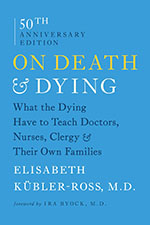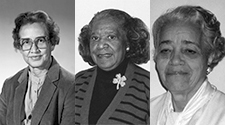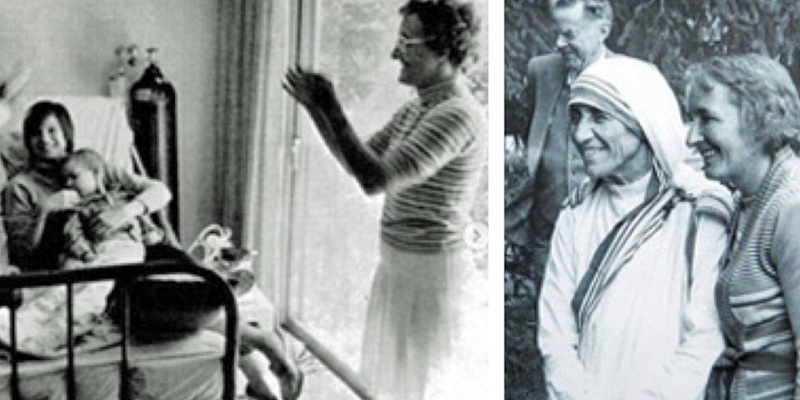Laura Mackinney is the co-vice president of Women in Medicine and also a medical assistant at the Birmingham Women’s and Children’s NHS Foundation Trust. Laura is on the Graduate Entry Medicine programme at the University of Birmingham, where she is currently on a surgery placement. Her goal is to enter the healthcare profession and help those with mental health conditions.

“Women have outnumbered men in medical schools for the past 25 years but are still massively underrepresented and underpaid in most senior medical positions. Not only are women underrepresented professionally, but they are also often overlooked medically. Despite women being more likely to encounter health services, many of their specific health needs are not met.”
From psychology to psychiatry to A&E
I started studying psychology at Cardiff University in 2014. Psychology is a subject I absolutely adore, I enjoy understanding how people think and feel, the concepts behind behaviour and attitudes. I am especially interested in the promotion of mental health and wellness.
I graduated with a first-class honour in psychology (my course was accredited by the British Psychological Society). I then spent a year working as a healthcare assistant in a mental health unit in central London. I immersed myself in understanding the dynamics of treating mental illness within the NHS.
During that year out I decided to apply to study medicine, with the intention of becoming a psychiatrist. I was offered a graduate-entry place at the University of Birmingham and have not looked back since! Now, I am in my third year (which correlates as fourth-year undergraduate medicine), with a final year left. During the COVID-19 pandemic, I worked as a health care assistant at Queen Elizabeth Hospital, mainly on the geriatric and neurology wards, trying to help out as much as I could.
Currently, I also work as a medical assistant at the Birmingham Children’s Emergency Department. I am finding this an incredible learning opportunity! My current interest is in child and adolescent psychiatry as I am seeing many children presenting to A&E in crisis, something I am learning how to manage.
Being on surgical placement
At Birmingham University, the surgery placement (surgery and peri-operative care) is split into five subjects: anaesthetics, orthopaedics, urology, rheumatology, as well as ENT [ear nose and throat]. We have one-to-two weeks on each subject with opportunities to immerse ourselves in that specific speciality.
Currently, I am on my orthopaedics placement, which is held at the Royal Orthopaedic Hospital in Birmingham, a world-leading centre for orthopaedic care. I have developed lots of new skills while on this placement, such as intubation (initially incredibly scary!), cannulation, catheterisation, and orthopaedic examination skills.
Curbing gender inequality both professionally AND medically

We strongly believe in helping connect students with diverse role models, providing leadership opportunities from influential and inclusive speakers and highlighting the challenges women face in medicine, including under-representation and gender-based discrimination. We provide talks, seminars, and are vocal on social media to help actively work towards changing that.
Women have outnumbered men in medical schools for the past 25 years but are still massively underrepresented and underpaid in most senior medical positions. Not only are women underrepresented professionally, but they are also often overlooked medically. Despite women being more likely to encounter health services, many of their specific health needs are not met.
Alongside the rest of the committee, as co-vice president of WIM, I want to be part of the movement to curb gender inequality both professionally and medically. We are currently in the process of becoming an official society at Birmingham University, but unfortunately due to COVID-19 our society status has been delayed.
However, this hasn’t meant we have not been busy! We run a regular talk called ‘Women in:’ where we ask women, non-binary, and supportive male champions to talk about their experiences and career pathways in different specialities of medicine.
We have also contributed to various conferences and run a mentoring scheme for members. We’ve also created a blog for medical students, and we are excited to be hosting a Transgender Healthcare: Education Matters talk this month.
Ode to Dr Elisabeth Kübler-Ross

This Women’s History month I’d like to take this opportunity to talk about Dr Elisabeth Kübler-Ross – a Swiss-American psychiatrist who is most famous for developing the “five stages of grief” model. This model was developed from Kubler Ross’ time with palliative patients, where she found that doctors and students at the time had little understanding of how to care emotionally for patients who were dying.
Observing terminally ill patients, she developed a non-linear model to describe how people cope with grief. The five main stages are:
- Denial;
- Anger;
- Bargaining;
- Depression;
- Acceptance.
Alongside this, she specialised in patients seen as ‘hopeless’, especially patients with schizophrenia. Her attitude was to treat patients with empathy and restore their dignity by not over-medicating and treating patients with respect and kindness.
She spent her entire life teaching and encouraging future medical students about the importance of empathy and giving dignity to the dying. I would argue that she was pivotal in creating the holistic and compassionate care we see in medicine to this day.
Respect, compassion and dignity
I first learn about Dr Kubler Ross’ work while studying A-level psychology! The Kubler Ross mode (five stages of grief) is a household concept in the field of psychology and medicine, so I have spent a lot of my academic career studying Kubler-Ross’ theories.

If anyone is interested in learning more about Kubler-Ross, I would recommend reading her book On Death and Dying.
Recognising the efforts of women in the past

To me, celebrating Women’s History Month is important for several reasons. Firstly, we are acknowledging the amazing women of our past, who have achieved incredible things who might not have been recognised at the time. For example, Katherine Johnson, Mary Jackson, and Dorothy Vaughan. By recognising the efforts of the women in our past we can see how much we have achieved, how much we owe to the women of our past, and how much there is still to do.
Secondly, by making this month a celebration I believe it encourages more people across the globe to become involved in the efforts of equality and promoting diversity. This is incredibly important – the more people, companies and societies that get involved, the bigger reach we have.
I have seen so many events happening this month to celebrate Women’s History Month and International Women’s Day, such as the Royal College of Psychiatry’s 25 Women Podcast and Seminar. Birmingham University has provided a host of events as well.
Getting into psychiatry
For those who are studying medicine, I would thoroughly recommend joining your university’s psychology or psychiatry society. They normally put on lots of events that help expose you to the different specialities and sub-specialities of psychiatry.
Furthermore, attend the students’ psychiatry conference! It is normally free, and you will get lots of advice about a career in psychiatry. I would also recommend looking at the Psych Star scheme that the Royal College of Psychiatry provides annually.
Psychiatry is an incredibly rewarding field of medicine, you have the opportunity to work with someone to help give them the tools they need to gain independence, mental wellbeing and essentially a better quality of life.
Coming up
I am excited to see what the future holds for WIM. I would love to host a Women in Medicine conference and I would love to keep building our social media platforms to reach as many people as possible. We have lots of events coming up in March!
Personally, I am excited for my medical elective which I am undertaking at Broadmoor Hospital in May, as it will give me a chance to explore psychiatry even further in a different setting.
I have one year left of my medical degree and I am looking forward to graduating at starting on a career path to becoming a child and adolescent psychiatrist.





